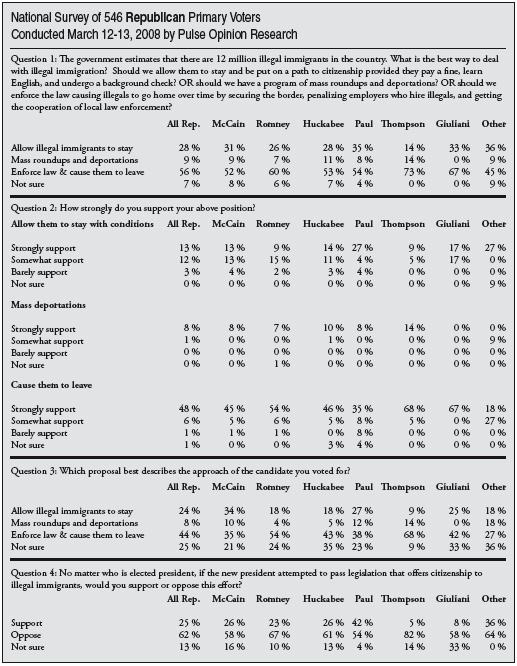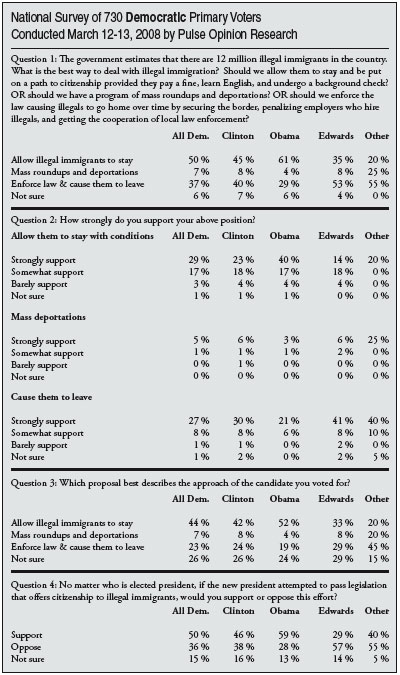WASHINGTON (March 31, 2008) –A new poll using neutral language finds that primary and caucus voters have little knowledge of candidates’ immigration positions. The results also show that voters often do not share their candidate’s position.
Among the findings:
- Only 34 percent of McCain voters, 42 percent of Clinton voters, and 52 percent of Obama voters correctly identified their candidate as favoring eventual citizenship for illegal immigrants who meet certain requirements.
- Of McCain voters, 35 percent mistakenly thought he favored enforcement that would cause illegals to return home, another 10 percent thought he wanted mass deportations, and 21 percent didn’t know his position.
- Voters often held different positions from the candidate they supported. Only 31 percent of McCain voters had the same immigration position as he does. For Clinton voters, 45 percent shared her position; 61 percent of Obama voters shared his position
- This lack of knowledge, coupled with disagreements with their candidates’ positions, makes it very difficult to draw any conclusions about the fact that all three remaining candidates favor legalization for illegal immigrants
- Whoever wins the presidency will face significant opposition to giving eventual citizenship to illegal immigrants. Just 25 percent of Republican and 50 percent of Democratic primary/caucus voters said they would support such an effort.
- Pro-enforcement voters have a greater intensity of views than supporters of legalization. Among Republicans, almost nine out of ten who favored causing illegals to return home said they strongly supported that view; on the other hand, fewer than half of Republicans who backed legalization strongly supported that view.
- This greater intensity also exists among Democrats. Of Democrats who favored causing illegals to return home, more than seven out of ten strongly supported that view; on the other hand, fewer than six out of ten who favored legalization strongly supported that view.
Methodology: The survey of 1,276 persons who voted in a primary or caucus was conducted March 12-13. The survey was conducted by Pulse Opinion Research.


Topics: Polls and Surveys
